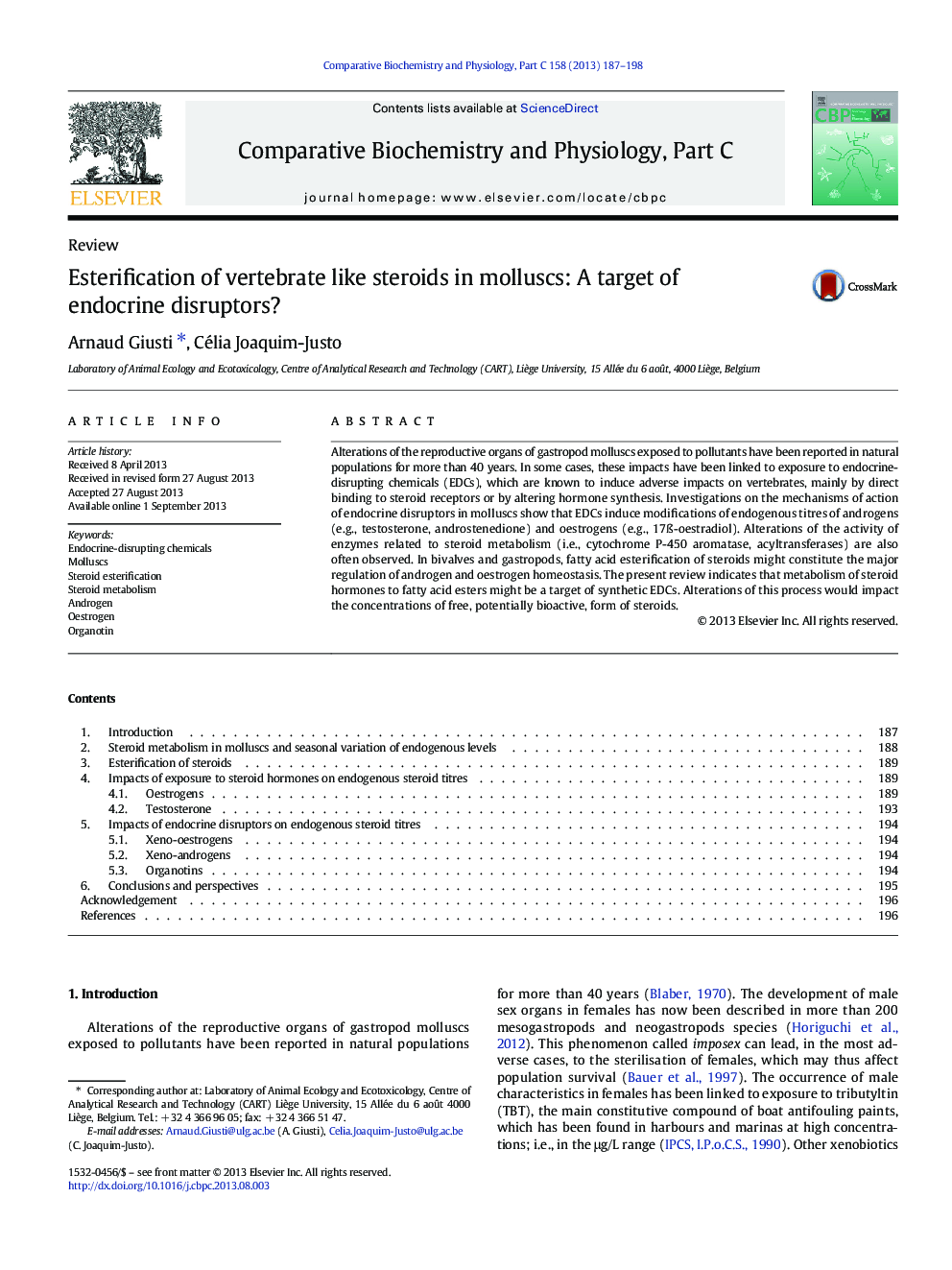| Article ID | Journal | Published Year | Pages | File Type |
|---|---|---|---|---|
| 1977321 | Comparative Biochemistry and Physiology Part C: Toxicology & Pharmacology | 2013 | 12 Pages |
Alterations of the reproductive organs of gastropod molluscs exposed to pollutants have been reported in natural populations for more than 40 years. In some cases, these impacts have been linked to exposure to endocrine-disrupting chemicals (EDCs), which are known to induce adverse impacts on vertebrates, mainly by direct binding to steroid receptors or by altering hormone synthesis. Investigations on the mechanisms of action of endocrine disruptors in molluscs show that EDCs induce modifications of endogenous titres of androgens (e.g., testosterone, androstenedione) and oestrogens (e.g., 17ß-oestradiol). Alterations of the activity of enzymes related to steroid metabolism (i.e., cytochrome P-450 aromatase, acyltransferases) are also often observed. In bivalves and gastropods, fatty acid esterification of steroids might constitute the major regulation of androgen and oestrogen homeostasis. The present review indicates that metabolism of steroid hormones to fatty acid esters might be a target of synthetic EDCs. Alterations of this process would impact the concentrations of free, potentially bioactive, form of steroids.
